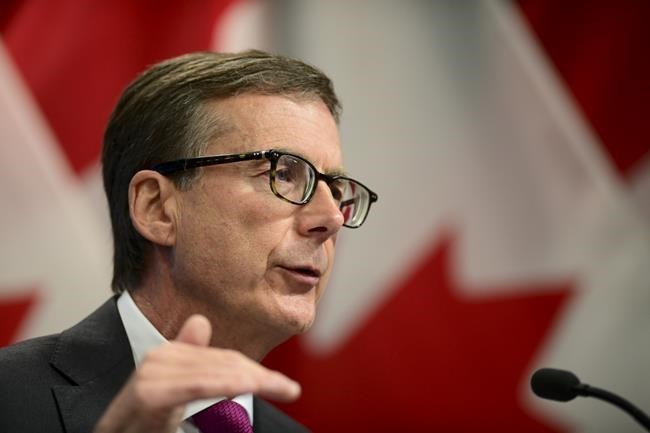OTTAWA — Bank of Canada governor Tiff Macklem says the central bank is seeing early signs that people may be purchasing homes solely because they believe prices may go up.
Macklem says rising prices in particular for single-family homes are still a long way from the heated market the country observed about five years ago.
Fuelling the increase has been a combination of demand for more space as millions of workers do their jobs remotely, constrained supply and rock-bottom interest rates driven low by central bank actions.
The bank's key policy rate has been at 0.25 per cent for about 11 months, and its quantitative easing program is trying to reduce the rates paid on things like mortgages to drive spending.
Macklem says the central bank is surprised by the rebound in the housing market.
He adds there are early signs of what he called "excess exuberance," with people maybe expecting the recent increases in prices to go on indefinitely.
"What we get worried about is when we start to see extrapolated expectations, when we start to see people expecting the kind of unsustainable price increases we've seen recently go on indefinitely," Macklem said during a question-and-answer session with chambers of commerce in Edmonton and Calgary.
"We are starting to see some early signs of excess exuberance, but we're a long way from where we were in 2016-2017 when things were really hot."
The central bank plans to keep its key rate low until the economy recovers, expected sometime in 2023, and adjust its bond-buying program over time.
Macklem says there is still a need for considerable monetary policy support to generate a complete recovery.
In the meantime, the bank will keep an eye on debt levels, as mortgage debt rises as households pay down other debt like credit cards and personal loans, Macklem says.
"We are acutely aware that in a world of very low interest rates, there is a risk that housing prices could get stretched, households could get stretched, and certainly that's a risk we want to guard against," Macklem told reporters following the speech.
This report by The Canadian Press was first published Feb. 23, 2021.
The Canadian Press




